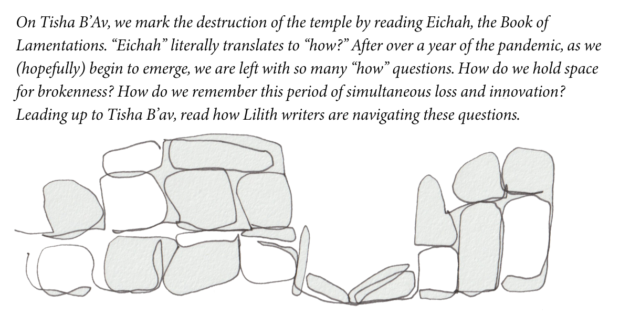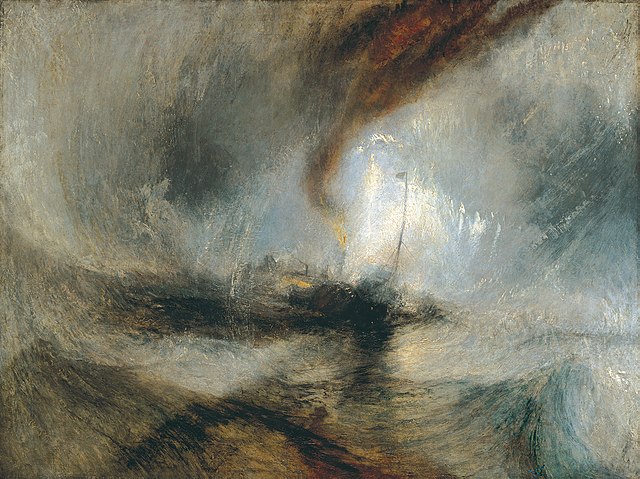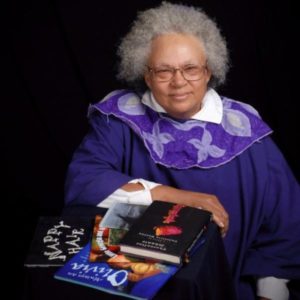

The core of this story came to me during a Pesach meal, when I was sitting across the table from a beloved friend, a descendent of Catholics. In the midst of our freedom meal it seemed the voice of my Sephardic ancestor came to me, reminded me of those who cast my ancestors out of Spain in 1492. Ancestral grief overtook me for a moment, I looked across the table at my dear friend and, surprising both of us, asked her why her ancestors had thrown my ancestors away. In addition to that specific sorrow, I had the sorrow of wondering how such conflict is carried on to new generations. I wanted a way to stop the grief.
You heard me speak before, I am Juba, I am the ancient BrownBlack Egyptian woman who grew from the little girl who stood behind the curtains of the high ruler when that droning prophet said, “so tell your people to stay inside and get the cows in, or the hail will fall on them and they’ll die.”
There were so many delays as I caught up to them, this prophet and people who went from Egypt to Israel, who went from Israel to the Levant to Spain. They carried my voice with them. You are hearing me now, from Spain, on tisha b’Av, 1492.
Yes, 1492.
I’m trying to remember it clearly from the beginning. I ran after them after leaving the silk curtain. I left when I heard this prophet who cared what happened to his enemy, who did not want his enemies to die. It was the only time one of those prophets cared. I told you that I caught up to them, but how was I to catch up? A few more days and he led them out of there.
They were carrying jewels and unleavened bread when they left, I saw them. What was I to do? I did not have a way of going with them quickly. I had to hide as I was running after them. When they crossed through the water, and the water closed up, and there was so much crying in the water, and so much timbrel dancing around a strong sister woman on their side, I was still standing quiet looking across the water at them.
Dry. I had to build a boat. I built a boat. By the time my boat took me to their side of the water they were so far ahead.
They built a temple before I got there. When I got there our temple was burning down. That was the first tisha b’Av I remember. I brought water for us to drink as we built the temple again. The temple burned down again. Our temple. Burned down. That was the second tisha b’Av I remember.
I left with them after the burning. We sailed northeast on the Mediterranean. We passed Lydia, we sailed around the north side of Crete, we looked north toward Thrace but that was a land of war.
Do you see my brown skin? Yes, really brown, brown that comes out of black, not just a suntan, but deep brown out of brown black. BrownBlack I am. Africa BrownBlack from Egypt to Sudan to Ethiopia to the Araba to Israel circling the Levant to Anatolia, Italy, Spain, Portugal, then back again to Italy. Centuries.
We kept sailing. We kept going.
And then, there I was sailing again because we would not change. Kol Nidre. Release from an oath. Sometimes some of us pretended for a little while. Release me from this oath and let me go. Let us go.
That’s the third tisha b’Av of destruction, when they kicked us out of Spain. Us. We were Jews and Muslims who were kicked out. We were friends then, Jews and Muslims, when they threw us out. They keep wanting to forget that we were here. They keep wanting to forget us. They keep wanting to forget that we were friends.
So I, Juba, tell you, you who come after me. Our mothers and their mothers told this story long ago. My daughters, burn the Shabbat candles on Friday nights. And when you huddle down the hill near the water, when they tell you to leave, when you have to pick up everything and go yet again because you do not want to be one of the bodies burned up, one of the temples burned up, there, in the wide plaza, the place of fire and pain . . . . When you huddle toward the ship that is taking you away across the whitened dusty earth . . . Don’t leave me. Take me with you. Remember.
I remember mostly the water and the boat and bringing up the fish to the Spanish village, but that was before they told us to go. We had a fishing boat in Spain. I walked between flower gardens and gravel down to the water. We made delicious bread. But they wouldn’t let us stay there.
We had to leave quickly. I didn’t want to go. My mother and father were with me, and two brothers. And we left that night, moving from Spain to Portugal. It was the ninth day of the month of Av on our calendar.
The day shall come when you will sit at a table with them, yes, sit with the children of those who cast you out. And they will join with you in dipping the bitter herbs in salt bitter water. And they shall have peace with you, after so much scattering. But you shall stand and shout, because I shall be there in you remembering.
Why did you hate me?
Why did you cast me out?

* Distinguished author Carolivia Herron, best known for her popular children’s book, Nappy Hair, has shared a fable about Tisha B’Av with our readers. Professor Herron is a longtime friend of our community who has taught courses in African American and Judaic Studies at Howard University, Arizona State University, and Harvard University.


Just read this it was very interesting.
Good story to help understand Tisha B’av. I enjoyed listening to good story tellers that I remember from my childhood. A good sermon could be delivered in storytelling format.
Reagan Jennings